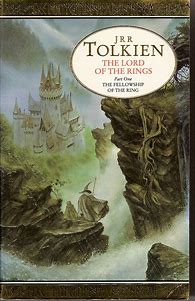Fictional histories are past, alternative or future. Reading even a small amount of real history demonstrates - which should already be obvious - that a fictional historian would have to devote an entire long career to a single series to even begin to reflect the detail and complexity of reality. Maybe the only serious contender in this respect is Tolkien.
When I finished school in 1967, I knew of only three American future historians, Heinlein, Asimov and Blish, although I rated them in the order: Blish; Heinlein; Asimov. I knew of Anderson as an sf writer but did not yet realize that van Rijn and Flandry would combine into a future history series, still less that I would come to regard that Technic History as the pinnacle of American future historiography.
Heinlein and Blish are too different to be fully comparable. Blish is better at providing background information in Wellsian historical passages: three introductions and excerpts from two educational lectures.
Both Stapledon and Blish chronicle the last days of mankind:
"...we shall make after all a fair conclusion to this brief music that is man."
-Olaf Stapledon, Last And First Men IN Stapledon, Last And First Men/Last Men In London (Harmondsworth, Middlesex, 1972), pp. 5-327 AT XVI, 3. Epilogue, p. 327.
"...we must note, with more than a little awe, the sudden and critical reappearance of Earthmen in this timeless moment of chaos and creation, and the drastic and fruitful exeunt which they wrote for themselves into the universal drama."
-Acreff-Monales: The Milky Way; Five Cultural Portraits IN James Blish, The Triumph Of Time IN Blish, Cities In Flight (London, 1981), pp. 467-596 AT Prologue, p. 471.
But Poul Anderson wrote in another work:
"The last man on Earth knew not that he was."
-Poul Anderson, "In Memoriam" IN Anderson, All One Universe (New York, 1997), pp. 57-67 AT p. 59.
Multiple futures, good, bad and indifferent.

1 comment:
Kaor, Paul!
That grim line from Anderson's "In Memoriam" was evocative. And besides not knowing he was the last man, he would not have cared as well. All his waning energies had been devoted to struggling for survival.
And in Appendix A of THE LORD OF THE RINGS, Tolkien even gives us fictional historical texts. Esp. those "copied" from the annals of the Numenorean kings and rulers.
Happy New Year! Sean
Post a Comment